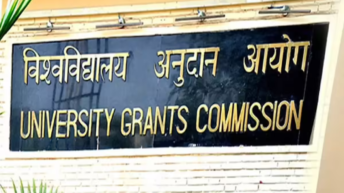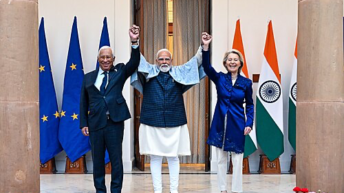
Making a ‘Moral Man’ has been the quest of the philosophers for centuries. Some believed that God and religion can achieve that; some believed in man’s ability for reason. In the Old Testament book of Ecclesiastes, King Solomon finds man’s moral virtue to be just to “fear God and keep his commandments”. But the later Enlightenment thinkers insisted upon man’s innate wisdom and his power of understanding as the basis of his virtue.
The Greeks gave the world the roots of democracy. But the early Greek philosophers too struggled with the question of individual morality and social happiness. In the Federalist Papers, James Madison, one of the founding fathers of the American Constitution and the fourth President of the United States highlights this serious democratic dilemma. “If men were angels, no government would be necessary. If angels were to govern men, neither external nor internal controls on government would be necessary. In framing a government which is to be administered by men over men, the greatest difficulty lies in this: you must first enable the government to control the governed; and in the next place oblige it to control itself”.
Deen Dayal didn’t find religion and reason to be opposite poles. His integral humanist philosophy was about man’s evolution through society and the universe towards the divine.
Plato’s answer to this dilemma was to have ‘philosopher-kings’. Either the philosophers should become kings, or the rulers should ‘genuinely and adequately philosophize’ for greater public happiness, Plato argued. Enlightenment thinkers like Kant believed in the power of human understanding. ‘Sapere aude’ – the Latin phrase meaning ‘dare to be wise’ became the motto of Enlightenment thinking. Reason was the God for the enlightenment thinkers.
This quest for the Moral Man had led to many experiments in the western world. The philosopher-king idea, while allowing for some wise men to rule over their subjects judiciously in the name of God, also created dictators like Hitler and Mussolini. But when reason became God, the Bastille was invaded by French citizens in July 1789 to set off the famous French Revolution. God was stripped of ‘His Holiness’ and reason occupied his place. “One god only, Le Peuple (The People)”, the French Revolutionaries declared, paving the way for the subsequent rise of both the Communist ideology and the democratic institutions. The Western civilization finally settled for a religious-moral narrative, which Martin Luther King Jr had beautifully summed up by saying “The arc of the moral universe is long, but it bends towards justice”.
At the level of society, the essence of Deen Dayal’s integral way was to satisfy the human longings for “Dharma, Artha, Kama and Moksha”.
It is this same quest that led Deen Dayal Upadhyay, a forgotten scholar-politician of the last century and one of the founding fathers of the Bharatiya Jan Sangh and later its President, to his famous philosophy of ‘Integral Humanism’. Deen Dayal grew up in the moralist tradition of the RSS, and hence for him, everything in life was based on moral principles of yore. Unlike the western philosophical thinkers, Deen Dayal didn’t find religion and reason to be opposite poles. His integral humanist philosophy was about man’s evolution through society and the universe towards the divine. He didn’t see man, society, nature and the ultimate reality in compartments or as concentric circles. It was an evolutionary spiral according to him, defining man’s journey.
Interestingly, the concept of the spiral by which the universe was described as the one without any beginning or end is not just an ancient Hindu thought. Many other ancient cultures too believed in the beginning-less and end-less history. The Greeks saw the universe to be continuously moving in a circular fashion – growing, decaying and recurring. For the Babylonians “past, present and future were all part of one continuous stream of events in heaven and earth. Gods and men continued ad infinitum”. The Native Americans looked at reality as circular – “cyclical, no-beginning, no-end, turn-and-turn-again, mythic view of reality”. Even in Buddhism, time is without beginning and without end.
Deen Dayal viewed Dharma not as a religion but as the eternal law that should encompass everything including the statecraft.
Deen Dayal’s integral man was a moral man fully integrated with the cosmic reality in a progressive realization through nation and nature. Four-fold arrangements are unique to Hindu culture. Deen Dayal based his entire philosophy on these four-fold arrangements. At the individual level, he averred that the integral progress of man is possible through the “four-fold responsibilities of catering to the needs of body, mind, intellect and soul”. At the level of society, the essence of Deen Dayal’s integral way was to satisfy the human longings for “Dharma, Artha, Kama and Moksha”.
The West has seen man, society and nature in compartments and found inherent conflict in their intersectional interaction. Deen Dayal’s integral humanism proposes a fundamental unity in the entire creation. That fundamental unity can be experienced through Dharma. Deen Dayal dwelt at length on the uniquely Indian concept of Dharma and described it as the ‘innate law’.
Deen Dayal’s mantra was for an integral human – an evolutionary integration of man with nation and nature on the principles of Dharma, the eternal moral virtues.
The West saw a complete separation of religion and state – ‘Render unto Caesar the things that are Caesar’s, and unto God, the things that are God’s ‘, said the Bible. However, Deen Dayal viewed Dharma not as a religion but as the eternal law that should encompass everything including the statecraft. “Dharma is eternal. Therefore, in the definition of democracy, to say that it is a government of the people is not enough; it has to be for the good of the people. Dharma alone can decide. Therefore, a democratic government, ‘Jana Rajya’, must also be rooted in Dharma, i.e. a ‘Dharma Rajya’. In the definition of democracy – of the people, by the people and for the people – ‘of’ stands for independence, ‘by’ stands for democracy and ‘for’ indicates Dharma. The true democracy is one where there is freedom as well as Dharma”, Deen Dayal argued.
In essence, while the West’s quest was for a moral man and the debates and disputes that ensued were over whether religion can create one or reason, Deen Dayal’s mantra was for an integral human – an evolutionary integration of man with nation and nature on the principles of Dharma, the eternal moral virtues.






Today, Pundit Dayalji is not with us, yet his contribution of movement towards the poverty section of our society and the farmers is the greatest outcome under Modi Sarkar in this era. We honour him for the foundation in his days.
పండిట్ దిన్ దయాల్ జి బాటలో నడిచే వారికే ప్రధాన భాద్యతలు అప్పచెప్పాలి రెండు కుటుంబ పార్టీల ను సమదూరం పాటించి గ్రామ స్థాయిలో మూడవ వర్గం ఏర్పడే విధంగా పెద్దలంతా యూహాలు రచించాలి అప్పుడే దిన్ దయాల్ కి జయంతి కి నిజమైన శుభాకాంక్షలు జై హింద్ జై బిజెపి
Thought provoking article. I don’t blame the West for dissociating: man from religion. For, they have been exploited for ages by papal bulls, standing between god and men, as intermediaries. Had they not come out of religious dogmas, they would not have achieved all the scientific successes, they have achieved so far . From split of atom to the present satellites and missile technology is the gift of man’s own endeavour. Once epidemics like small-pox, polio etc were considered as the God’s wrath. Now, many are cured with vaccines that scientists developed. Again that’s how man tried his best with his wisdom. In Bhagwat Gita, Srikrishna says to man: Do your best and leave the rest to me. The Lord never said: Be passive or Have fear of me always. Even Jesus Christ said almost the same: God helps those who help themselves.
Science always analyses things and Religion syntheses. Deen Dayal Upadhyaya talk on integral humanism, is to treat all humans as ‘one’ whole, with no divisions. That’s how I understood, his philosophy of life. It’s rare to find people like him. The article throws many questions on : Religion and Man. It needs much contemplation.
A lucid & comparative analysis of Integral Humanism as propounded by the great statesman Deen Dayal Upadhyaya whose life had been, unfortunately, cut short without seeing his further contributions to the humanity. Maybe the immortal spirit of his and of leaders like him has at last seen the enthronement of the BJP which believes in Integral Humanism. Thank you Ram Madhav Garu.
Of the three problems that plagues mankin… individual conduct, knowledge and understanding and governance… there’s no single philosophy eastern nor western that can offer any simple solution. Otherwise, we would see the east doing better than west… or vice-versa.
The concept of the integral man suits Dayal’s localized situation… I don’t think its exportable in a global sense
I suspect that this sentence encapsulates what ought to be the central theme of any governance structure anywhere in the world “Deen Dayal viewed Dharma not as a religion but as the eternal law that should encompass everything including the statecraft.”
ఈ రోజుల్లో కూడా శ్రీ దీనదయాల్ ఉపాధ్యాయ మరియు శ్రీ శ్యాం ప్రసాద్ ముఖర్జీ గారి అడుగుజాడల్లో నడుస్తూ ఉన్న లక్ష వాది బీజేపీ పార్టీ కార్యకర్తలకు శతకోటి వందనాలు